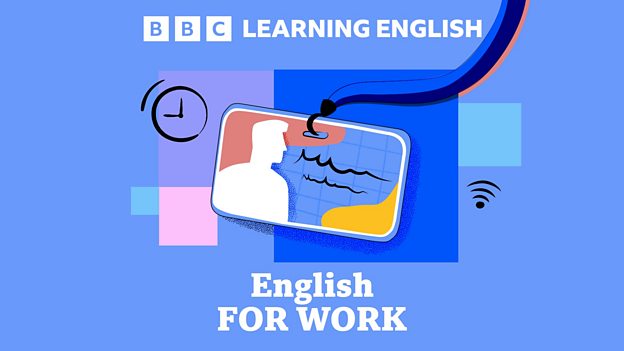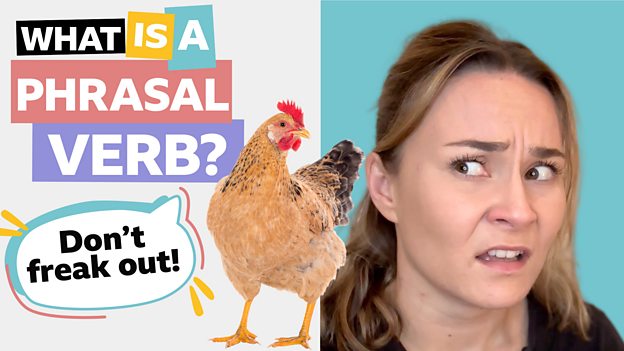6 Minute English
Intermediate level
Should we farm octopus?
Episode 231102 / 02 Nov 2023

____________________________________________________________________________
Learn more about the environment
____________________________________________________________________________
Introduction
Is it OK to farm octopus when they have been shown to experience feelings? Beth and Neil discuss this and teach you some useful vocabulary.
This week's question
Where did Inky the octopus go when he broke out of his tank at the New Zealand National Aquarium in 2016?
a) down a drain into the Pacific Ocean?
b) to the tank of a female octopus? or,
c) to the aquarium car park?
Listen to the programme to hear the answer.
Vocabulary
umami
a savoury flavour; one of the five basic tastes
sentient
describes animals which are able to experience feelings, such as joy and pain
life cycle
the series of changes something goes through from birth to death
solitary
likes to live alone
in captivity
kept somewhere and not allowed to leave, like in a zoo
trade-off
to exchange one thing for another
TRANSCRIPT
Note: This is not a word-for-word transcript.
Neil
Hello. This is 6 Minute English from BBC Learning English. I’m Neil.
Beth
And I’m Beth.
Neil
Beth, what do you think about when I say the word octopus?
Beth
Well, I know they're intelligent, they can change colour to hide in their surroundings, and of course, they have 8 arms. But, I have to admit, I also think they about how they taste – delicious.
Neil
I think so too, as do plenty of other people. Octopus is most commonly eaten in South Korea, Spain, Portugal and Japan where they can't get enough of that umami flavour. Umami is one of the 5 basic tastes and is a savoury flavour. Until recently, octopus has only been caught in the wild. But now, a Spanish multinational company has announced it will be ready to sell farmed octopus soon, which campaigners have described as 'ethically and ecologically unjustified'.
Beth
This is because octopuses are sentient, an adjective describing a thing that experiences feelings, like pleasure and pain. Humans and many other animals, like pigs, monkeys and birds, are also sentient. So, is it OK to farm octopus when they have been shown to experience feelings? In this programme, we’ll be discussing whether farming octopus can ever be ethical, and, as usual, we’ll be learning some useful new vocabulary as well.
Neil
But first I have a question for you, Beth. Octopuses are known for their ability to problem solve and, when kept in tanks, have been known to escape. But, where did Inky the octopus go when he broke out of his tank at the New Zealand National Aquarium in 2016? Was it:
a) down a drain into the Pacific Ocean?
b) to the tank of a female octopus? or,
c) to the aquarium car park?
Beth
Hmm, I’ll guess he went to the tank of a female octopus.
Neil
OK, Beth, I'll reveal the answer later in the programme. In many countries, it's not easy to find octopus in shops, but if plans for farmed octopus go ahead, you're much more likely to see it in the supermarket. Claire Marshall, who has been reporting on the octopus farm story since 2019, explains why octopuses have not been farmed before, as she told BBC World Service programme, The Food Chain:
Claire Marshall
They've got an incredibly complex life cycle and it's, scientists have been sort of working feverishly to try to close that life cycle, particularly in Mexico and Japan and obviously now Spain. They need live food – the larvae. And also octopuses are incredibly solitary and it just makes it really hard to manage to basically keep them in captivity at a commercial scale.
Beth
Octopuses are difficult to farm because they have a complex life cycle, the series of changes an animal goes through, starting with birth and ending in death.
Neil
Unlike traditional farmed animals like chickens and pigs, who are social animals and can be kept together, octopus are solitary – meaning they like to live alone. This makes keeping them in captivity very difficult because of space. If an animal lives in captivity, it is kept somewhere and not allowed to leave, even if it wants to – like in a zoo.
Beth
But it's not only space that is a problem when it comes to farming octopus. It's their capacity to feel emotions as well. Scientific researcher, Dr Heather Browning, has been studying the sentience of octopuses for a British government-commissioned report. She shared the report findings with Ruth Alexander, presenter of BBC Radio 4 programme, The Food Chain:
Dr Heather Browning
So, we wanted to look at whether they had specific kinds of nerve connections. Or if they have specific kinds of brains, and whether they were capable of performing certain kinds of trade-off behaviours or pain-related behaviours, learning behaviours that we thought would correlate with the probability of sentience. And what we found with octopuses in particular is they seemed to meet many of the criteria that we laid out.
Beth
The scientists found that octopuses do experience feelings because they show typical characteristics of sentient creatures, such as trade-off behaviour. Trade-off means giving up one thing in return for another, such as giving up shelter for food. So it looks like the debate about whether it’s OK to farm and eat octopuses will continue…
Neil
OK, Beth. I think it’s time I revealed the answer to my question. I asked you where Inky the octopus went when he escaped his tank at the New Zealand National Aquarium.
Beth
And I said it was to the tank of a female octopus.
Neil
And that was… the wrong answer I'm afraid! In fact, Inky the octopus was trying to reach the tank of a female, but he found a drain instead, which lead straight to the Pacific Ocean! OK, let's recap the vocabulary we've learned from this programme, starting with umami, the flavour octopus has which can be described as savoury and is one of the five basic tastes.
Beth
If something is sentient, it experiences feelings such as joy and pain.
Neil
Life cycle is the series of changes something goes through from birth to death.
Beth
If something is solitary it likes to live alone.
Neil
In captivity means an animal is kept somewhere and is not allowed to leave.
Beth
And finally, trade-off means to exchange one thing for another. Once again our six minutes are up. Join us again soon for more useful vocabulary here at 6 Minute English! Goodbye for now!
Neil
Bye!
Latest 6 Minute English
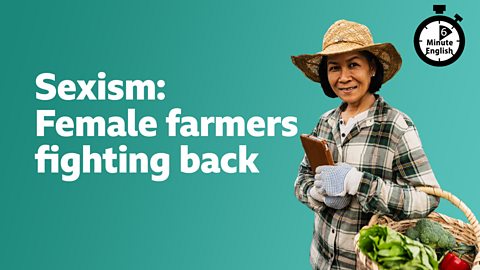
Sexism: Female farmers fighting back
Episode 231228 / 28 Dec 2023
How can female farmers beat rural sexism?
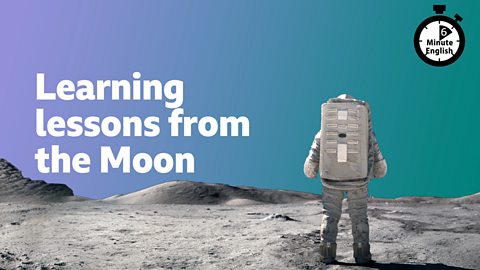

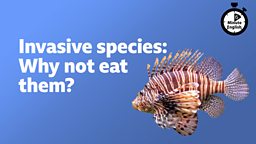
Invasive species: Why don't we eat them?
Episode 231207 / 07 Dec 2023
Could we eat invasive species?

What and where is Little Italy?
Episode 231130 / 30 Nov 2023
Mozzarella, ricotta, cannolis and focaccia... Where are we? Little Italy of course!

Social media and teenage health
Episode 231123 / 23 Nov 2023
What are the health risks of social media for teenagers?

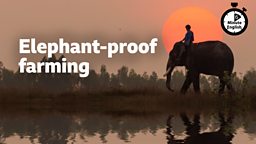
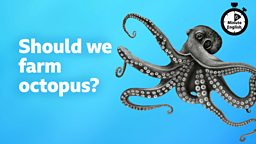


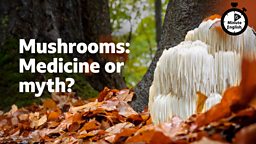


Sounds that make you want to scream
Episode 230928 / 28 Sep 2023
Are there any sounds you find upsetting?




The stories behind our names
Episode 230831 / 31 Aug 2023
What do our names reveal about our culture and family history?


Are you unhappy at work?
Episode 230817 / 17 Aug 2023
Does work leave you feeling bored and exhausted?



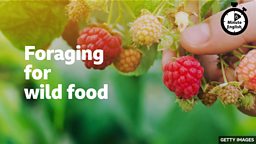



Is it wrong to eat plants?
Episode 230629 / 29 Jun 2023
Should we treat plants with the same consideration we treat animals with?



The art of subtitling
Episode 230608 / 08 Jun 2023
Hear how subtitles can help bring TV and movies to life

Ecotourism: good or bad?
Episode 230601 / 01 Jun 2023
We discuss the growing popularity of ecotourism.
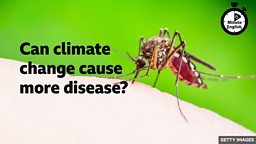
Can climate change cause more disease?
Episode 230525 / 25 May 2023
With warming temperatures, mosquitos are now spreading to new areas, including Europe.



Ice and the origins of life on Earth
Episode 230504 / 04 May 2023
We talk about an essential element for life to thrive.

Women in politics
Episode 230427 / 12 Apr 2023
We discuss some of the reasons why women make up only 26% of the world's politicians.

What's the point of museums?
Episode 230420 / 20 Apr 2023
We discuss the role of museums in the 21st century and the items taken from different countries.

How culture affects sadness
Episode 230413 / 11 Apr 2023
What ways do you think culture can influence sadness?

Would you eat a Kalette?
Episode 230406 / 06 Apr 2023
Hear about a new kind of vegetable making an entrance in British kitchens

Do you get jealous easily?
Episode 230330 / 06 Mar 2023
Let's talk about the ugly green-eyed monster


Food and mood
Episode 230316 / 16 Mar 2023
We look at the link between what you eat and how you feel.

How to talk to a climate denier
Episode 230309 / 09 Mar 2023
The dos and don'ts of trying to discuss science with someone who doesn't believe in it

Losing your mother tongue
Episode 230302 / 02 Mar 2023
Hear the story of a woman who replaced her native Czech for English.
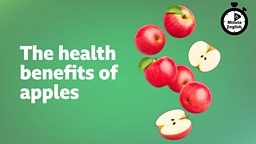
The health benefits of apples
Episode 230223 / 23 Feb 2023
Could 'an apple a day keep the doctor away'?


Doomscrolling: Why do we do it?
Episode 230209 / 27 Jan 2023
What is doomscrolling and why are we attracted to bad news? Listen to find out!

Exercise for the lazy
Episode 230202 / 22 Jan 2023
What's the least amount of exercise you should do to stay healthy?

Can AI have a mind of its own?
Episode 230126 / 26 Jan 2023
Hear about the software engineer who became 'friends' with his computer

Climate change: Are there too many people?
Episode 230119 / 13 Jan 2023
Does the size of your carbon footprint depend on where in the world you were born? Listen to find out!
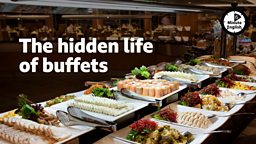
The hidden life of buffets
Episode 230112 / 12 Jan 2023
Neil and Sam discuss buffet meals and the history behind them.

Songwriting
Episode 230105 / 05 Jan 2023
Writing a memorable song isn't easy. So is there an art to good songwriting?


